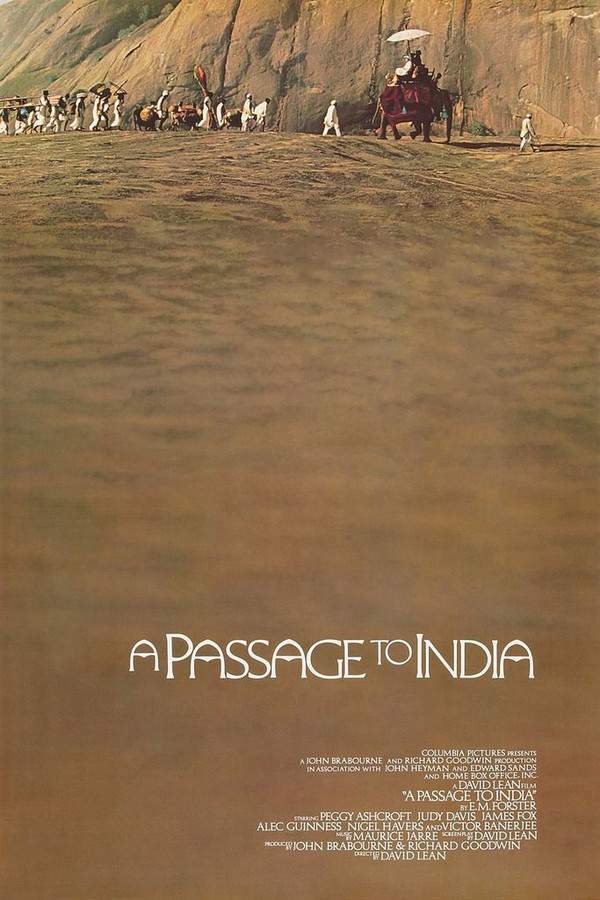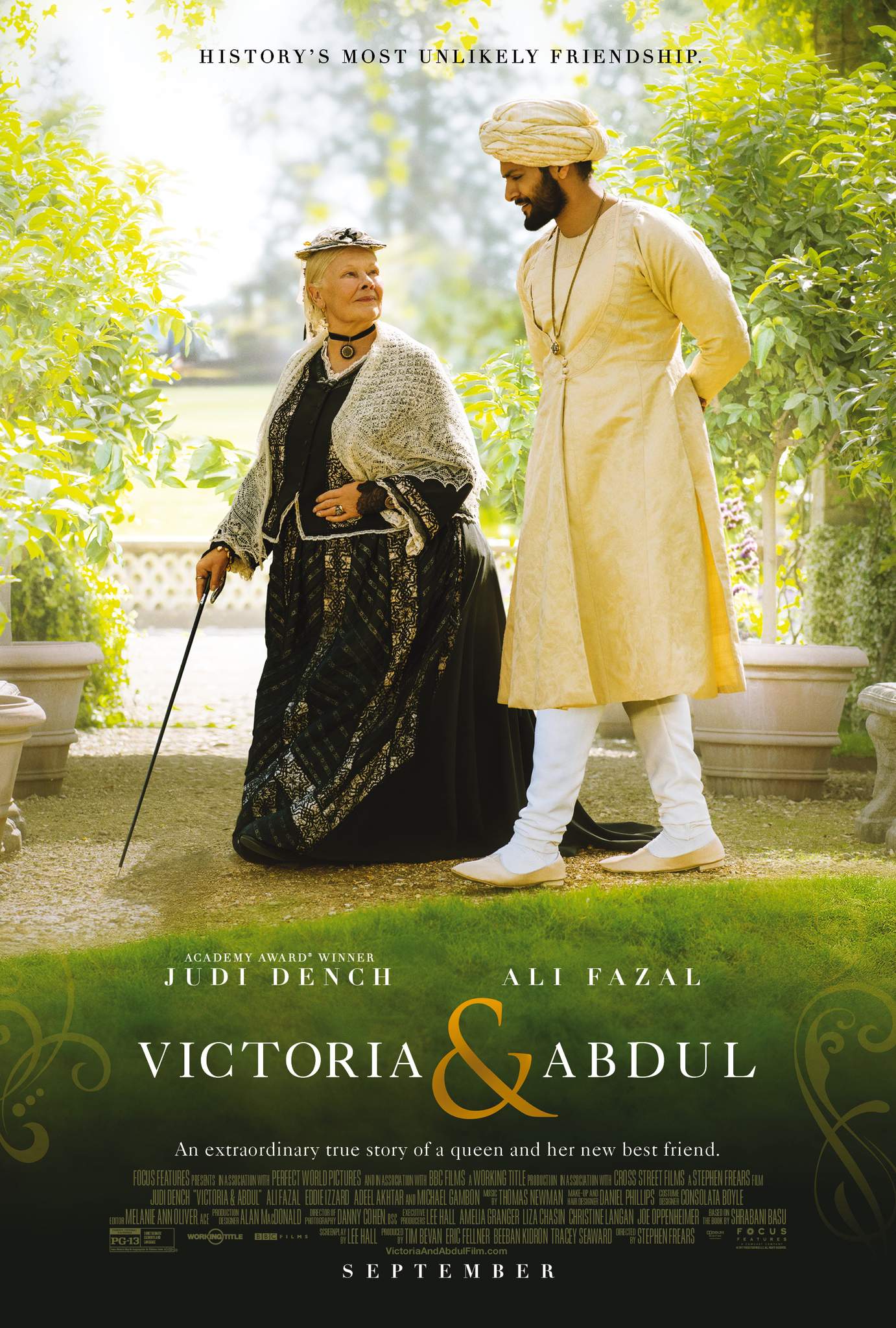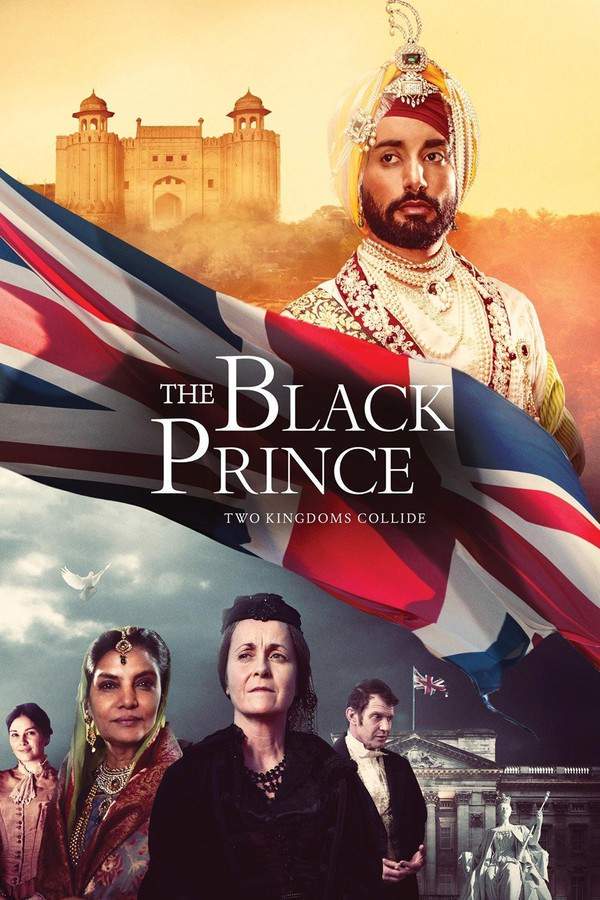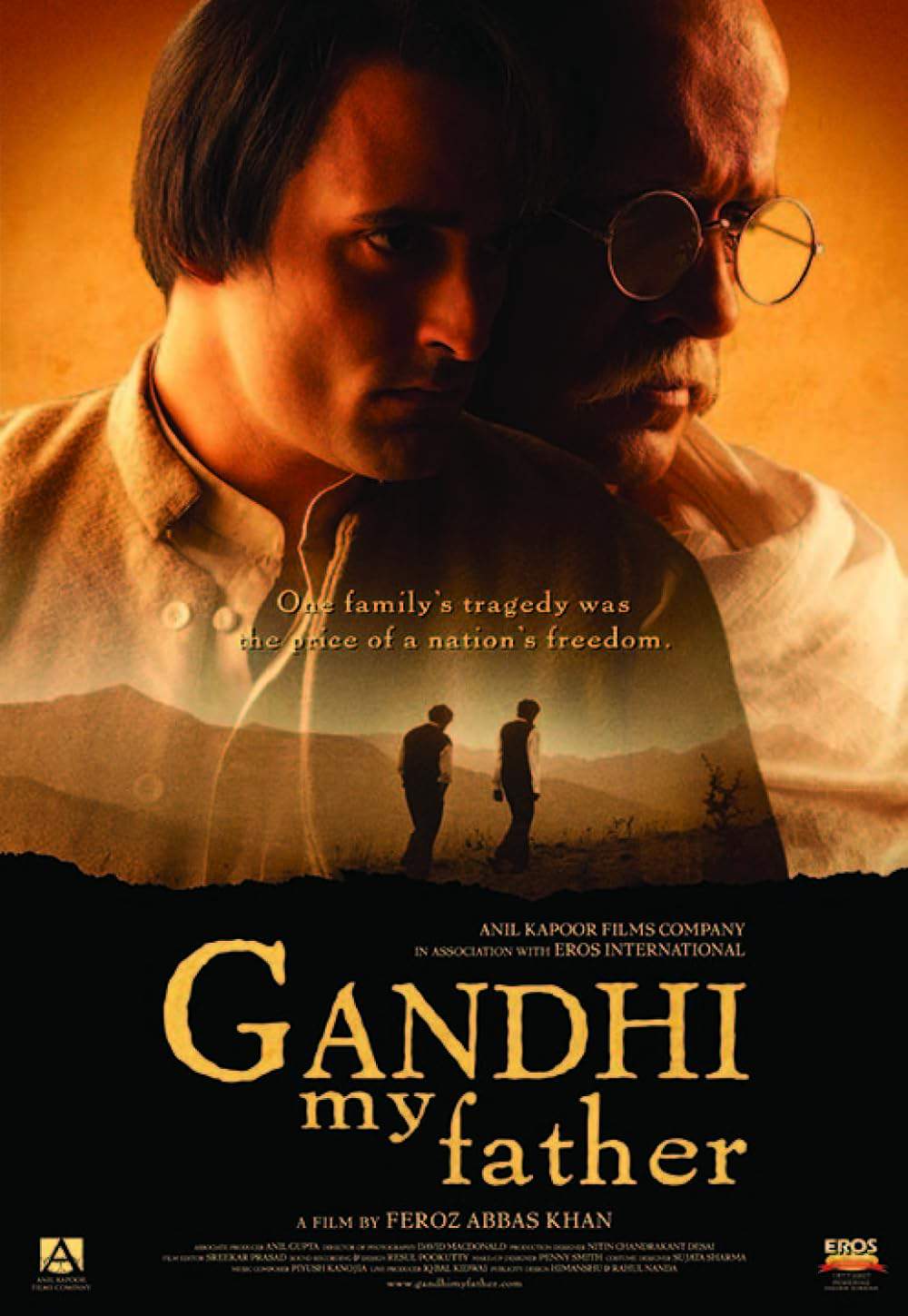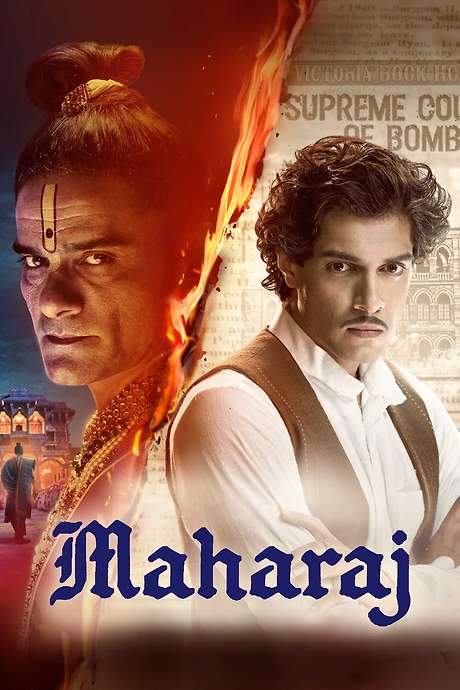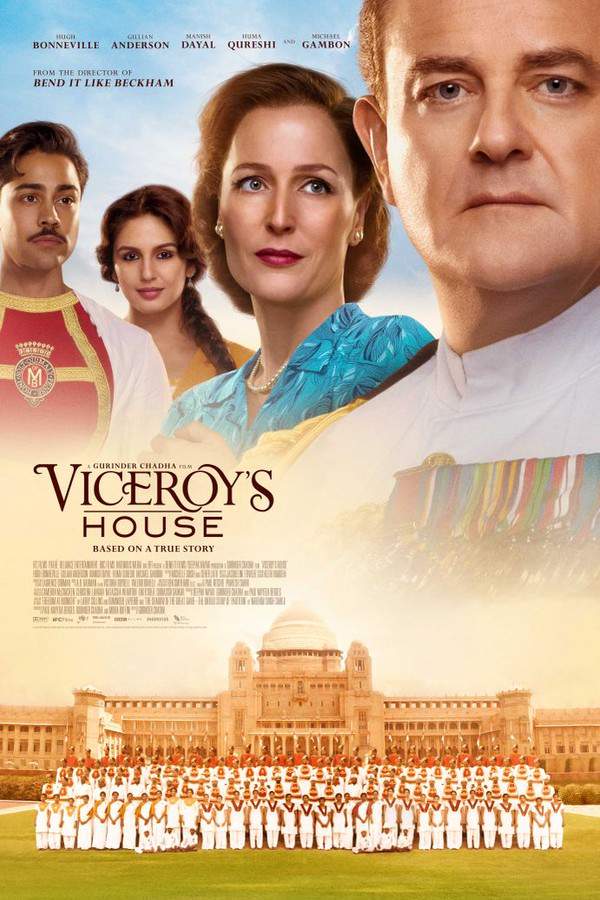
Viceroy's House 2017
Directed by

Gurinder Chadha
Made by

IFC Films
Test your knowledge of Viceroy's House with our quiz!
Viceroy's House Plot Summary
Read the complete plot summary and ending explained for Viceroy's House (2017). From turning points to emotional moments, uncover what really happened and why it matters.
In 1947, Lord Mountbatten (Hugh Bonneville) makes his arrival at the Viceroy’s House in Delhi, accompanied by his determined wife Edwina (Gillian Anderson) and their daughter Pamela (Lily Travers). As Britain announces its impending departure from India after three centuries of colonial rule, the nation finds itself weary from the toll of war, rendering the British incapable of sustaining their empire in the East. Despite Queen Victoria being the empress of India, she has never set foot in the land.
Serving as Mountbatten’s Chief of Staff, Lord Lionel ‘Pug’ Ismay (Michael Gambon) is skeptical of India’s capability to govern itself. Meanwhile, Ewart (David Hayman) manages the operational affairs of the Viceroy’s House, and Miss Reading (Roberta Taylor) oversees the female staff, working closely with Edwina.
As the last Viceroy of India, Mountbatten’s mission is to facilitate the end of the British Raj and to usher in a new independent Indian nation. Mountbatten endeavors to mediate a significant conflict between two prominent political figures: Jawaharlal Nehru (Tanveer Ghani), who advocates for a unified nation, and Muhammad Ali Jinnah (Denzil Smith), who seeks to forge a separate Pakistani state. With a population of 300 million Hindus and 100 million Muslims, Nehru points out that 2.5 million Indians fought for Britain in WWII, in hope of freedom that has yet to materialize. Amid escalating Hindu-Muslim riots resulting in countless deaths, doubts arise about Mountbatten’s sincerity regarding the transfer of power, given his royal ties.
As Mountbatten grapples with the task of peacekeeping in a fracturing nation, Edwina grows alarmed upon discovering distressing social conditions, like a staggering 92% illiteracy rate and extremely high infant mortality rates. Urging her husband to take action, Edwina’s compassionate nature shines through, especially in her treatment of the Indian staff. She forms a rapport with Ram Lal Chandra (Raj Zutshi), her Indian Head Chef, frequently visiting the kitchen to express her appreciation.
In a parallel narrative, Jeet (Manish Dayal), Lord Mountbatten’s newly appointed valet, crosses paths with Aalia (Huma Qureshi), someone he previously fell in love with. Aalia is responsible for taking care of Pamela, and their history is intricate—Aalia’s father was imprisoned for supporting Gandhi, leading Jeet, then a supporting Hindu policeman, to fall for her. Despite their connection, Aalia stands firm in her engagement to Asif (Arunoday Singh), driven by cultural differences and familial obligations.
Mountbatten’s political journey continues as he meets Nehru, who stands resolutely opposed to the partition, while Edwina subtly forms a connection with him. Amidst their discussions, Jinnah remains adamant about a partition, fearing for Muslim rights in a Hindu-majority India. He cites historical precedents from British actions with Ireland and Palestine, arguing for a similar approach in India to maintain peace.
In a pivotal moment, Mountbatten meets with Gandhi (Neeraj Kabi), who recommends inviting Jinnah to construct the inaugural Government of India—a suggestion Nehru is unwilling to endorse, ultimately siding with partition. As violence rages across the nation, the British hasten the independence process, and Mountbatten, believing in a unified state initially, must confront the harsh reality of division.
With only days left before the power transfer, boundaries for the new state remain undecided—Mountbatten learns of a previously kept policy document from Ismay outlining territorial divisions. Feeling used as a pawn, he realizes that millions will be displaced due to their decisions. The intensity of communal strife grows as the Viceroy’s servants are forced to choose their loyalties amidst escalating violence.
As Aalia begins to acknowledge her feelings for Jeet, their relationship undergoes trials with Aalia’s allegiance to Asif complicating matters. With the deadline for the transfer of power looming, their fates intertwine dramatically amidst the chaos of partition. Days later, devastating news reaches Jeet—Aalia’s train to Pakistan has been attacked, leaving him heartbroken.
In the wake of chaos and refugee influx, the Mountbattens choose to remain and aid where possible. Jeet throws himself into helping the refugees, his path crossing again with Aalia, who miraculously survives the attack. In a moment of recognition and hope, their love emerges from the ashes of turmoil.
Viceroy's House Timeline
Follow the complete movie timeline of Viceroy's House (2017) with every major event in chronological order. Great for understanding complex plots and story progression.
Arrival in India
In 1947, Lord Mountbatten arrives at the Viceroy's House in Delhi, bringing with him his wife Edwina and their daughter Pamela. Their arrival marks a significant moment as Britain prepares to announce the end of its colonial rule in India after three centuries.
Announcement of Independence
As the British government declares its intention to depart from India, the nation stands at a crossroads, burdened by the effects of war. The toll of conflict has left both colonizers and the colonized weary and in need of resolution.
Conflict Among Leaders
Mountbatten takes on the challenging role of mediating between prominent leaders Jawaharlal Nehru and Muhammad Ali Jinnah. Nehru champions the idea of a unified India, while Jinnah is determined to secure a separate state for Muslims, reflecting deepening divides within the country.
Pug Ismay's Skepticism
Lord Lionel 'Pug' Ismay expresses doubts about the ability of Indians to self-govern, highlighting the colonial mindset prevalent among British officials. This skepticism complicates the already tense atmosphere in the Viceroy's House as discussions about independence unfold.
Edwina Faces Social Inequities
Edwina Mountbatten becomes increasingly alarmed by the dire social conditions in India, including a staggering illiteracy rate and high infant mortality. Motivated by her compassion, she urges her husband to take meaningful action to alleviate the suffering of the Indian populace.
Jeet and Aalia's Past
Jeet, Lord Mountbatten's valet, encounters Aalia, a woman he once loved under complex circumstances. Their love story is interwoven with historical tensions, as Aalia's father was imprisoned for his support of Gandhi, complicating their reunion.
Partition Discussions
As political discussions intensify, Jinnah remains firm on the necessity of partition. He draws parallels to British actions in other regions, asserting that separation is essential for maintaining Muslim rights, foreshadowing the turmoil to come.
Meeting with Gandhi
In a crucial meeting, Gandhi suggests involving Jinnah in the formation of the new Government of India. Nehru's reluctance reflects the divisions among leaders, complicating the push for unity and paving the way for the eventual partition.
Hastened Independence Process
As violence erupts across India, the British expedite the process of transferring power. Mountbatten, who initially believed in a unified India, must reconcile his ideals with the pressing reality of communal strife and impending division.
Territorial Divisions Revealed
With only days remaining before independence, Mountbatten discovers an old policy document outlining the territorial divisions. Realizing that millions will be displaced, he grapples with the moral implications of the decisions being made.
Escalation of Violence
As communal violence escalates, the pressures on the Viceroy's household intensify. Mountbatten’s servants face difficult choices regarding their loyalties amid the chaos, highlighting the deeply ingrained divisions in society.
Jeet and Aalia's Complications
With the partition deadline approaching, Jeet and Aalia struggle with their feelings amidst the turmoil. Aalia’s commitment to her fiancé Asif adds layers of complexity to their rekindled relationship as cultural and familial obligations weigh heavily.
Train Attack
Tragedy strikes when Jeet learns that Aalia’s train to Pakistan has been attacked, leaving him heartbroken. This attack exemplifies the cruel realities of partition and the devastating impact it has on personal lives.
Mountbattens Assist Refugees
In the aftermath of chaos and a rising refugee crisis, the Mountbattens resolve to stay in India and help those displaced. Their actions reflect a shift in responsibility as they strive to provide aid amid the escalating humanitarian disaster.
Reunion of Jeet and Aalia
After enduring immense hardship, Jeet crosses paths with Aalia, who miraculously survived the train attack. In a poignant reunion, their love begins to blossom again, symbolizing hope amidst the ashes of turmoil and despair.
Viceroy's House Characters
Explore all characters from Viceroy's House (2017). Get detailed profiles with their roles, arcs, and key relationships explained.
Lady Edwina Mountbatten (Gillian Anderson)
Lady Edwina Mountbatten is portrayed as a compassionate and determined figure deeply concerned with the social issues facing India during the tumultuous time of partition. Her character emerges as a bridge between cultures, advocating for the welfare of the Indian people. Her relationship with the staff and her urgent pleas for action illustrate her progressive ideals.
Lord Louis Mountbatten (Hugh Bonneville)
Lord Louis Mountbatten serves as the last Viceroy of India, tasked with the monumental responsibility of orchestrating the country’s transition to independence. His character grapples with the weight of history and his own royal lineage, torn between the desire for a unified nation and the realities of political conflict. His leadership is marked by moments of sincerity and doubt as tensions rise.
Jawaharlal Nehru
Jawaharlal Nehru is depicted as a steadfast leader advocating for Indian unity. His commitment to a cohesive nation highlights the ideological clash with Muhammad Ali Jinnah. The stakes are high as he navigates the political landscape, revealing his dedication to his vision for India's future.
Jeet Kumar (Manish Dayal)
Jeet Kumar is introduced as Lord Mountbatten's valet, whose personal narrative reflects the intricate social landscape of India. His deep-seated love for Aalia amidst cultural divide brings to light the personal struggles faced during a period of political upheaval. Jeet's character evolves as he becomes actively involved in assisting refugees.
Viceroy's House Settings
Learn where and when Viceroy's House (2017) takes place. Explore the film’s settings, era, and how they shape the narrative.
Time period
1947
The year 1947 marked the end of British colonial rule in India, leading to the partition of the country into two independent nations, India and Pakistan. This period was filled with political turmoil, social strife, and communal violence, as different factions battled over the future of the nation. As millions faced displacement and chaos, the actions taken during this time shaped the subcontinent's history.
Location
Viceroy's House, Delhi
The Viceroy's House in Delhi was the principal workplace and residence of the Viceroy of India during British rule. This grand estate is a symbol of British colonial architecture and was pivotal during significant political transitions in India. It witnessed the negotiations and challenges of independence, making it a significant historical landmark.
Viceroy's House Themes
Discover the main themes in Viceroy's House (2017). Analyze the deeper meanings, emotional layers, and social commentary behind the film.
🕊️
Peace and Conflict
The theme of peace amidst conflict is a central element of the film, as Lord Mountbatten navigates the turbulent transition towards India's independence. Challenges arise as he mediates between Indian leaders with starkly contrasting visions for the nation. The film underscores the complexities of maintaining peace during such a critical juncture in history.
❤️
Love and Sacrifice
Love and sacrifice are poignantly illustrated through the relationship between Jeet and Aalia, reflecting the personal toll of political upheaval. Their romance, complicated by cultural obligations and familial pressures, embodies the struggles faced by individuals amidst the wider chaos of partition. The film highlights how love can flourish even in the harshest conditions.
📜
Historical Legacy
The movie explores the historical legacy of colonization and the intricate politics behind India's independence. It addresses how decisions made by colonial powers resonate through the lives of millions. This theme is woven into the narratives of both the political leaders and the common people depicted in the film.

Coming soon on iOS and Android
The Plot Explained Mobile App
From blockbusters to hidden gems — dive into movie stories anytime, anywhere. Save your favorites, discover plots faster, and never miss a twist again.
Sign up to be the first to know when we launch. Your email stays private — always.
Viceroy's House Spoiler-Free Summary
Discover the spoiler-free summary of Viceroy's House (2017). Get a concise overview without any spoilers.
In the waning days of the British Empire, the grand Viceroy’s House in Delhi stands as a gilded backdrop to a nation poised on the brink of freedom. The summer of 1947 brings together sweeping architecture, humid streets, and a chorus of voices—all whispering the same question: what will become of a land divided by faith, history, and hope? The film’s tone is a blend of quiet dignity and restless anticipation, inviting the audience to feel the weight of an impending dawn that could either illuminate or shatter.
At the heart of this historic moment is Lord Mountbatten, the newly appointed Viceroy tasked with overseeing the transfer of power. Beside him is his determined wife Edwina, whose compassion for the Indian people quickly becomes a counterpoint to her husband’s diplomatic restraint. Their young daughter Pamela provides a glimpse of innocence amid the political storm. Within the house, a cadre of loyal staff—including the skeptical chief of staff Lord Lionel ‘Pug’ Ismay, the meticulous administrator Ewart, and the attentive housekeeper Miss Reading—adds texture to the domestic sphere, each embodying different attitudes toward the empire’s final act.
Beyond the walls, the future of the subcontinent hangs in the balance as two towering leaders articulate competing visions. Jawaharlal Nehru argues for a united nation, while Muhammad Ali Jinnah presses for a separate state to safeguard his community’s future. Their dialogue, set against the broader backdrop of Gandhi’s moral guidance, underscores the cultural and religious fault lines that threaten to fracture a shared destiny. The film captures the charged atmosphere of negotiations, where every word is measured and every glance carries the weight of millions.
Interwoven with the grand political narrative are quieter, personal stories that echo the larger upheaval. Jeet, a newly appointed valet, finds his past entwined with Aalia, a caretaker whose own loyalties are pulled between love, duty, and the expectations of her family. In the kitchens, the charismatic chef Ram Lal Chandra becomes an unexpected bridge between the British household and Indian staff, hinting at the human connections that persist amid uncertainty. These relationships lend the film an intimate, humanizing layer, suggesting that even in times of monumental change, individual hearts continue to seek hope and understanding.
Can’t find your movie? Request a summary here.
Movies with Similar Twists and Themes
Uncover films that echo the narrative beats, emotional arcs, or dramatic twists of the one you're exploring. These recommendations are handpicked based on story depth, thematic resonance, and spoiler-worthy moments — perfect for fans who crave more of the same intrigue.
Featured on this page

What's After the Movie?
Not sure whether to stay after the credits? Find out!
Explore Our Movie Platform
New Movie Releases (2026)
Famous Movie Actors
Top Film Production Studios
Movie Plot Summaries & Endings
Major Movie Awards & Winners
Best Concert Films & Music Documentaries
Movie Collections and Curated Lists
© 2026 What's After the Movie. All rights reserved.



